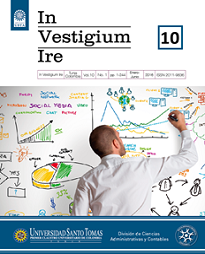The isp’s role in improving intellectual property protection on the digital economy
##plugins.themes.bootstrap3.article.main##
Résumé
Il existe à nos jours une tendance de protection des droits d´auteur dans l´économie numérique qui cherche à protéger l´industrie de contenus, défavorisant ainsi les intérêts, les libertés et les droits des usagers d´internet. Bien que ceci est une réponse à l´évidente augmentation des infractions et de la piraterie, elle est aussi une conséquence de l´incapacité de cette industrie à innover et à s´adapter à une nouvelle réalité. Cet article cherche à analyser le rôle des fournisseurs de services d´internet ou ISP, entant que responsables d´identifier et bloquer postérieurement les contenus présumés infracteurs. On présente d´abord un panorama de tout ceci à partir de l´expérience nord-américaine pour ensuite présenter le modèle canadien comme une solution viable et de garantie.
##plugins.themes.bootstrap3.article.details##
Comment citer
Vargas-Chaves, I. (2016). The isp’s role in improving intellectual property protection on the digital economy. In Vestigium Ire, 10(1), 112-117. Consulté à l’adresse http://revistas.ustatunja.edu.co/index.php/ivestigium/article/view/1183
Numéro
Rubrique
Artículos Núm. 10
Références
Achareandi, R., & Maldonado, F. (2012). Observatorio de piratería y hábitos de consumo de contenidos digitales. Madrid: IDC España.
Drucker, P. (2012). Innovation and Entrepreneurship. Londres: Routledge.
Garrote Fernández-Diez, I. (2003). El derecho de autor en internet. Madrid: Comares.
Kleinschmidt, B. (2010). An International Comparison of ISP’s Liabilities for Unlawful Third Party Content. International Journal of Law and Information Technology, 18(4).
Leyshon, A. (2009). ¿The software slump?: digital music, the democratisation of technology, and the decline of the recording studio sector within the musical economy. Environment and planning, 41 (6).
Link, Karina (2014). Business Model Dynamics In The Music Industry: Video Killed The Radio Star - Or How The Internet Altered Business Models In The Music Industry. University of Twente Repository.
Marsden, C. (2008). Beyond Europe: The Internet, regulation, and multistakeholder governance: ¿representing the consumer interest?. Journal of Consumer Policy, 31 (1).
_______. (2011). Network neutrality and Internet service provider liability regulation: Are the wise monkeys of cyberspace becoming stupid?. Global Policy, 2 (1)
Marshall, L. (2012). The International Recording Industries. New York: Routledge.
Miller, K. (2010). Uniform dispute resolution policy: an uphill fight for domain name registrants, Journal of Contemporary Legal Issues, 19.
Musiani, F, Schafer, V. & Le Crosnier, H. (2013). Net neutrality as an Internet governance issue: the globalization of an American-born debate. Revue Française d’Études Américaines, 4
Nadal Sánchez, H. (2011). Sin neutralidad en la red. Neutralidad de la red y otros retos para el futuro de Internet: Actas del VII Congreso Internacional Internet, Derecho y Política. Barcelona: UOC.
Ryan, J., & Caitriona, H. (2010). Internet access controls: Three Strikes ‘graduated response’ initiatives. Draft paper. Institute of International and European Affairs.
Sidak, J. (2006). A consumer-welfare approach to network neutrality regulation of the Internet. Journal of Competition Law and Economics 2 (3)
Stamatoudi, I. (2010). Copyright Enforcement and the Internet. Londres: Kluwer Law International.
Drucker, P. (2012). Innovation and Entrepreneurship. Londres: Routledge.
Garrote Fernández-Diez, I. (2003). El derecho de autor en internet. Madrid: Comares.
Kleinschmidt, B. (2010). An International Comparison of ISP’s Liabilities for Unlawful Third Party Content. International Journal of Law and Information Technology, 18(4).
Leyshon, A. (2009). ¿The software slump?: digital music, the democratisation of technology, and the decline of the recording studio sector within the musical economy. Environment and planning, 41 (6).
Link, Karina (2014). Business Model Dynamics In The Music Industry: Video Killed The Radio Star - Or How The Internet Altered Business Models In The Music Industry. University of Twente Repository.
Marsden, C. (2008). Beyond Europe: The Internet, regulation, and multistakeholder governance: ¿representing the consumer interest?. Journal of Consumer Policy, 31 (1).
_______. (2011). Network neutrality and Internet service provider liability regulation: Are the wise monkeys of cyberspace becoming stupid?. Global Policy, 2 (1)
Marshall, L. (2012). The International Recording Industries. New York: Routledge.
Miller, K. (2010). Uniform dispute resolution policy: an uphill fight for domain name registrants, Journal of Contemporary Legal Issues, 19.
Musiani, F, Schafer, V. & Le Crosnier, H. (2013). Net neutrality as an Internet governance issue: the globalization of an American-born debate. Revue Française d’Études Américaines, 4
Nadal Sánchez, H. (2011). Sin neutralidad en la red. Neutralidad de la red y otros retos para el futuro de Internet: Actas del VII Congreso Internacional Internet, Derecho y Política. Barcelona: UOC.
Ryan, J., & Caitriona, H. (2010). Internet access controls: Three Strikes ‘graduated response’ initiatives. Draft paper. Institute of International and European Affairs.
Sidak, J. (2006). A consumer-welfare approach to network neutrality regulation of the Internet. Journal of Competition Law and Economics 2 (3)
Stamatoudi, I. (2010). Copyright Enforcement and the Internet. Londres: Kluwer Law International.


